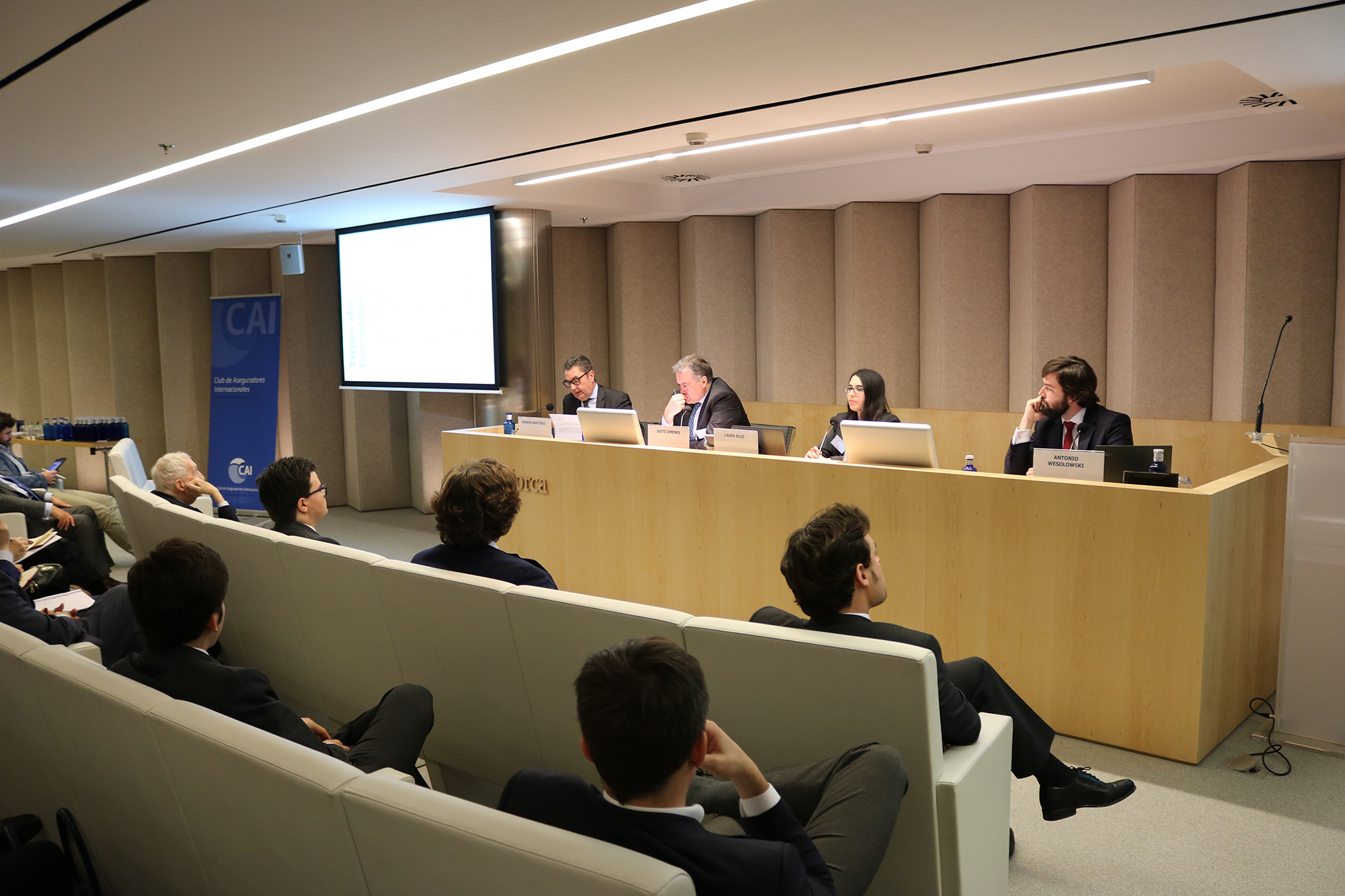Pérez-Llorca played host to the “Legal and insurance analysis of surety insurance” conference at its Madrid headquarters, where various experts from the Spanish insurance sector spoke about current issues in the field of surety insurance.
The session was opened by Justo Jiménez, a member of the board of directors of the CAI and general director of Glarus Ibérica, who also acted as moderator. The speakers were Laura Ruiz, a senior associate in Pérez-Llorca’s Litigation and Arbitration practice, Andrés Martínez, legal director of Dual Ibérica and Antonio Wesolowski, a partner at Wesolowski Abogados.
Laura Ruiz spoke first and introduced the concept of surety insurance. She outlined that it is an insurance through which the insurer is obliged to indemnify the insured (creditor) in any case in which the policyholder (debtor) fails to comply with their obligations. Thus, she stressed that the insured risk is the potential failure of the policyholder complying with its obligations. She also referred to the differences between surety insurance and other related concepts, such as bonds, and concluded by discussing whether surety insurance is a guarantee at first request.
Next, Andrés Martínez presented the concept of surety insurance from a practical perspective, as well as the benefits that this type of insurance has for legal operators. Firstly, he discussed whether or not surety insurance is a high-risk insurance. Secondly, he addressed the question of whether surety insurance allows for the insurance of penalties, because its legal regulation establishes that this type of insurance covers the payment of penalties. Lastly, he discussed the different guarantees that surety insurance can cover, as well as its benefits (lower cost than bank guarantees, more flexibility in service and the fact that surety insurance does not compromise the financial resources of the policyholder).
To conclude the presentations, Antonio Wesolowski analysed the evolution of the legislative and case-law framework for surety insurance. Wesolowski referred to the fact that, historically, the figure of surety insurance has not had a clear place within the legal framework for insurance, as it is – in essence – a guarantee that does not conform to the typical features of an insurance contract. He also indicated that this lack of clarity in the legal definition may cause uncertainty for those who are not familiar with surety insurance, which will sometimes lead them to opt for a bank guarantee if a guarantee is required. In order to clear up these doubts, he explained that, in fact, thanks to the already well-established jurisprudential construction of surety insurance, the defining features of this type of insurance make it a guarantee instrument that is not only comparable to a bank guarantee – as it provides equally effective protection – but also has considerable advantages over the latter, which make it more attractive.
The session ended with a round of questions from the audience, who were particularly interested in some controversial issues related to surety insurance, such as the insurability of penalties, whether this type of insurance is claims made, whether it can be used to cover penalties, what would be the effect of failing to submit or return the surety insurance certificate (if any), and what would be the appropriate action to take to recover a mispayment.
The almost 80 attendees were treated to a fabulous drinks reception provided by Wesolowski Abogados, where they had the opportunity to do some valuable networking.
